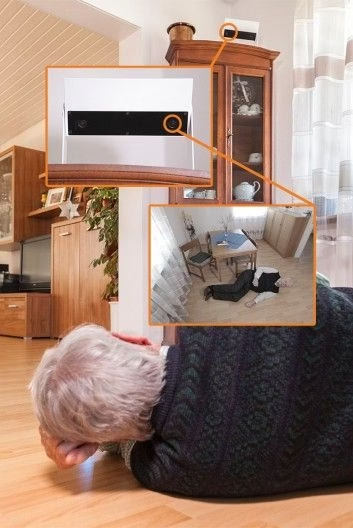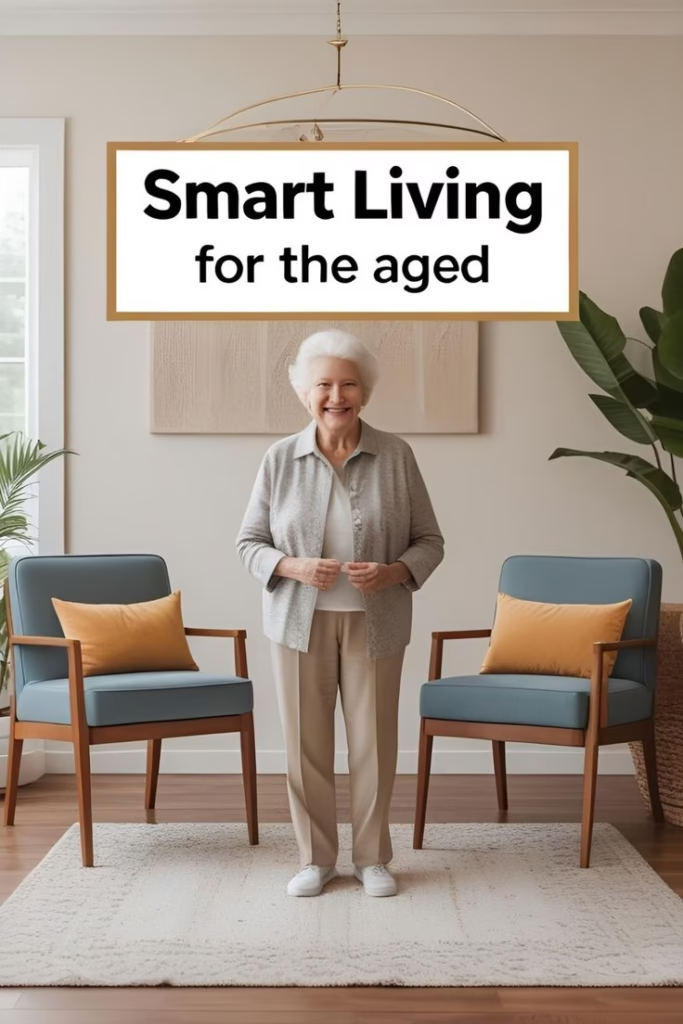


Families are increasingly turning to smart home devices for aging in place to keep loved ones safe and independent.
More seniors than ever want to remain in the comfort of their own homes. Families often face the challenge of balancing independence with safety, especially as loved ones grow older. Fortunately, technology offers solutions. Today’s smart home devices for aging in place make it possible for seniors to live safely and independently while giving families peace of mind.
In this guide, we’ll explore seven powerful devices and technologies that are transforming home care. You’ll learn how these tools support safety, independence, and comfort—while also easing the responsibilities of caregivers.
The idea of “aging in place” has become a top priority for families and health professionals. Most seniors want to stay in familiar surroundings, but safety concerns such as falls, missed medications, or isolation can complicate that choice.
This is where aging in place technology comes in. Smart devices not only protect seniors from risks but also give caregivers access to valuable insights. From fall detection sensors to medication reminders, technology is creating reliable aging in place solutions that improve quality of life.
👉 If you’re considering professional caregiving alongside technology, explore our In-Home Care Services.
When it comes to the best smart home devices for seniors, the focus is on safety, convenience, and easy use. Here are the top categories every family should consider.
Falls are one of the leading causes of hospital visits for seniors, according to the CDC. Wearable devices and in-home motion sensors now detect when a fall occurs and can immediately notify family or emergency services. These fall detection sensors for elderly reduce response time and potentially save lives.
Voice assistants are more than just entertainment devices—they are vital smart technology for elderly. Seniors can ask for reminders, call family, adjust lights, or even contact help without lifting a finger. For those with mobility issues, this is life-changing.
Good lighting reduces the risk of falls, especially at night. Motion-activated lights ensure seniors never walk into a dark hallway. Smart thermostats automatically adjust temperatures for comfort and safety, preventing overheating or hypothermia. These are simple but effective aging in place technology tools.
Home security is a major concern for seniors living alone. Remote monitoring for seniors through smart cameras and video doorbells allows families to check in at any time. These systems also alert homeowners to visitors or unusual activity, offering both safety and peace of mind.
Missed doses can lead to serious health complications. According to the Mayo Clinic, medication management is one of the biggest challenges for seniors. Smart pill dispensers with built-in reminders ensure medications are taken correctly. Caregivers can also receive alerts if a dose is missed.
Artificial Intelligence (AI) is no longer futuristic—it’s already shaping the way we care for seniors.
Smart wearables and AI-enabled apps track sleep patterns, heart rates, and movement. By analyzing changes, AI can warn caregivers of potential health issues before they become emergencies. This is the power of AI in home care.
Loneliness affects many seniors. AI-powered companions or chat devices provide friendly conversation, reminders, and even brain-stimulating games. While they don’t replace family, they can help reduce feelings of isolation.
AI tools also simplify caregiving schedules, reducing stress for families. These programs recommend routines, coordinate tasks, and ensure seniors get consistent care.
👉 At Epic Nursing Services, we also emphasize human connection—learn more about our About Us.
For families, technology creates aging in place solutions that bring peace of mind. Knowing you’ll receive an alert if something happens allows caregivers to focus on quality time instead of constant worry.
Remote access means caregivers don’t need to be physically present to ensure safety. It reduces unnecessary hospital visits, lowers stress, and makes aging in place a realistic option.
The AARP has highlighted how seniors are increasingly adopting technology to support their independence—an important shift for modern caregiving.
Not every device works for every senior. Consider:
Health conditions: Choose monitoring tools suited to mobility, memory, or chronic illness.
Ease of use: Look for voice-activated or single-touch systems.
Budget: Options range from affordable smart speakers to more advanced monitoring systems.
By focusing on aging in place technology that matches your loved one’s needs, you’ll maximize both safety and independence.
Despite the benefits, families should be aware of potential challenges:
Privacy & data security: Smart devices collect data—ensure it’s protected.
Learning curve: Some seniors need training to feel confident using new devices.
Reliability: Choose trusted brands and test devices regularly.
While these challenges exist, the long-term benefits of smart technology for elderly far outweigh the drawbacks.
Technology is not replacing caregivers—it’s enhancing care. With the right smart home devices for aging in place, seniors can enjoy greater independence while families feel reassured. From fall detection sensors to AI-powered monitoring, these solutions are transforming the future of home care.
At Epic Nursing Services, we believe in combining compassionate caregiving with modern tools to give your loved ones the best quality of life.
👉 Contact Epic Nursing Services today to learn more about our trusted in-home care in Massachusetts.

A1: The best smart home devices for seniors include fall detection sensors, smart voice assistants, automated medication dispensers, smart lighting, and remote monitoring cameras. These tools enhance safety and independence while aging in place.
A2: Smart home technology improves home care by providing real-time health monitoring, medication reminders, emergency alerts, and remote communication. This reduces risks, gives families peace of mind, and helps seniors remain independent.
A3: Many smart home devices are cost-effective and can prevent expensive hospital visits or assisted living costs. Options range from budget-friendly smart speakers to advanced monitoring systems, depending on each family’s needs.
A4: Yes. Many devices are voice-activated, simple to operate, and designed with seniors in mind. Caregivers or family members can also set up devices to ensure ease of use.
A5: AI assists in detecting health changes early, offering predictive alerts, supporting caregivers with scheduling, and even reducing loneliness through virtual companionship.

At Epic Home Health Services, we believe that exceptional care starts with powerful partnerships. We proudly collaborate with a network of top-tier healthcare providers, reputable hospitals, long-term care facilities, and innovative health systems who share our unwavering commitment to quality care, patient-first service, and clinical excellence.
Our partners are more than affiliates—they are strategic allies in driving healthcare innovation and delivering life-changing outcomes. By aligning with industry-leading organizations, we ensure our nurses have access to cutting-edge resources, streamlined systems, and a strong support network that empowers them to perform at their very best.